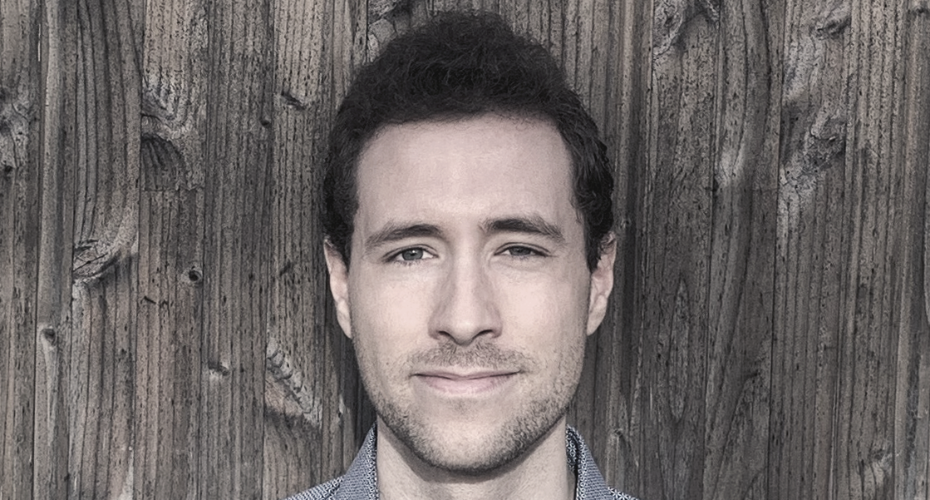“Evidence shows technology can improve mental health and wellbeing.”
Friday, 28 July, 2023
Dr(opens in a new window)Kevin Dohertyis Assistant Professor of Human Computer Interaction in the School of Information and Communication Studies at University College Dublin. Kevin’s research focuses on the design and development of new and improved health and mental healthcare technologies.

Back when he was an Engineering undergrad in Trinity College Dublin, Kevin Doherty befriended a deaf classmate called Micheál Kelliher.
“In order to be able to better communicate with him, I began taking sign language classes and when I did that, I realised that, at the time, there was a real lack of digital resources to support Irish sign language learning.”
So, in their spare time, he and Kelliher got together and built the app, ConciseISL, a video dictionary and learning system for Irish sign language. It now has more than 4,000 users among the deaf community, their family and friends.
“Over the years the app has grown in use and it's been one of the most successful and most promising projects I've been part of, actually. It's been really great to see the ways in which people have benefited from the use of that app in their lives.”
Thinking about apps that improve people’s health and wellbeing has been a hallmark of Dr Doherty’s research for the last decade.
In January he joined UCD as interim programme director of the Masters in Human-Computer Interaction (HCI), where his work will continue to focus on health and mental healthcare technologies.
“This refers to a very broad range of different tools and systems, from mobile apps to support mindfulness in daily life to medical devices, including things like surgical tools. Over the past ten years, I've worked on various kinds of systems that fall into these various different categories. Most recently, my work has mostly been around mobile devices, and particularly mobile apps, as a way of improving access to care within various mental health conditions.”
His work looks at both the design of mobile phone apps for users and the clinical interfaces to support health professionals’ decision-making in relation to care.
But are digital therapy apps any substitute for in-person treatment?
“In the case of cognitive behavioural therapy (CBT), for example, which is a commonly employed technique, the literature suggests that face-to-face therapy works in about 50% of cases. The literature also suggests that we see similar rates of success for computerised cognitive behavioural therapy. But this is an emerging space with lots of different possibilities.”
Immediately prior to joining UCD, Dr Doherty worked on a three-year national project in Denmark, exploring the use of mobile technologies to improve access to primary care for patients experiencing schizophrenia and bipolar disorder.
“Focusing on what the medical literature would term those more severe forms of mental illness really pushed us to think about what is the right role for technology here? I think we have to be careful when developing these systems that we don't overstep ourselves in terms of what is really possible through mobile technologies.”
The main tenet of his work in HCI - which blends computer science, psychology and design - is ensuring that the systems built meet the needs and values of users.
“This is particularly important in the mental health and wellbeing space.”
Some might suggest that mental health cannot be outsourced to technology when we can still struggle to treat it in face-to-face, clinical settings.
“I wouldn't necessarily disagree. But I think there's a lot of evidence that technology can play a role in improving mental health and wellbeing. One of the real success stories from Ireland has been the development of SilverCloud,” he says, of the online mental health platform which originated in Trinity and has since been deployed across the NHS. It supports people while they wait for in-person care.
“There have been quite a number of large scale studies involving the platform which have demonstrated its success.”
Dr Doherty was not involved in SilverCloud, but while at Trinity completing his PhD in HCI he developed another mental health app, in collaboration with Microsoft Research Cambridge and Imperial College London.
“The purpose of BrightSelf was to support access to care for women experiencing depression during pregnancy. We ran quite a large study where we deployed that app through many different midwifery clinics across England.”
The app allowed the women to self-report their psychological wellbeing.
“Our aim was to see whether engaging with this app might prove a feasible means of accessing care for women experiencing distress. We had some quite positive results in that respect. Women engaged with the system over a long period of time, some even after their pregnancy.”
Antenatal depression is the strongest predictor of postnatal depression.
“And so our mission was to see if we could support women by enabling access to care at an earlier stage in that journey.”
His work now in UCD also involves developing novel digital therapeutics.
“Aside from CBT, there is a wide range of other approaches to therapy that I'm interested in exploring. I'm also interested in finding new ways of leveraging health data to support care in the case of chronic and comorbid conditions, which is increasingly a problem for health services internationally.”
What excites him most about the field is its interdisciplinarity.
“We're trying to work collaboratively with medical professionals, psychologists, epidemiologists, computer scientists, designers. I think there's huge potential to do a lot more by bringing together this diverse expertise.”
Listen to the(opens in a new window)podcast. The School of Information and Communication Studies is now offering a PhD scholarship in HCI supervised by Kevin Doherty. Deadline June 5, 2023. Applyhere.
This article was originally published on Wednesday, April 26th, 2023